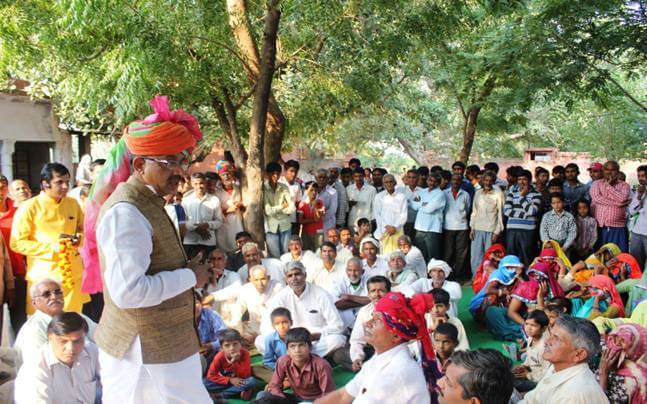This Blog is written by Soujanya Boxy from National Law University, Odisha. Edited by Ravikiran Shukre.
Laws relating to sexual orientation and gender identity have changed a lot. Several laws that prohibited same-sex intimacy and the expression of various gender identities have been repealed by different jurisdictions in the world. Further, a rising number of jurisdictions are amending their laws for the protection of lesbian, gay, bisexual, and transgender (LGBT) people…
This Blog is written by Illa Mathi Maran from UPES, Dehradun. Edited by Ravikiran Shukre.
The feminist criticism of criminal law and the criminal justice administration that has the proliferated and over the past decade and now touched score of doctrinal and theoretical issue. The critique and the association and the proposal and the for reform are usually acknowledged to be controversial, then the proposal which was made usually acknowledged to…
This Blog is written by Tanvi Sanjay Rane from Dr. D.Y. Patil College of Law, Maharashtra. Edited by Ravikiran Shukre.
Crime is an inevitable and universal phenomenon that forms an integral part of every human society. Truly speaking, it is impossible to find a society free from the problems of crime and criminals. The existence of criminality provided it does not exceed, for each social type, a certain level is regarded as a normal though regrettable phenomenon. But when crime…
This Blog is written by Saptaswara Chakraborty from North Eastern Hill University, Meghalaya. Edited by Ravikiran Shukre.
International law as the name suggests is the law that is applied in the relations of the States and their subjects under international law. The subject matter of an international convention or for that matter a treaty, not only holds itself being of prime importance for the two parties engaged in the treaty but also sets a precedent for future agreements to come. Similarly…
This Blog is written by Jatin Pandey from Dharmashastra National Law University, Jabalpur. Edited by Ravikiran Shukre.
Discrimination is generally defined as an act or action by which a distinction is created between individuals which are based on different factors like caste, sex, income, community, etc. Many of us faced discrimination in our life. Though we have certain legislations which prohibit unlawful and unjustifiable discrimination. There are different types of…
Controversies Surrounding Legislation On Organ Retention: How Can the Existing Problems Be Regulated
This Blog is written by Divya Bhargava from Indore Institute of Law, Madhya Pradesh. Edited by Ravikiran Shukre.
Before discussing the concept of exiting problems and legislation, we need to understand the meaning of ‘organ retention’ it is a procedure where the organs from the body are remove from the particular period for the proper diagnosis and retained. The procedure of organ retention can be used in both positive and negative way. But here, the most important…
This Blog is written by Anindo Chatterjee from Amity Law School, Noida. Edited by Prakriti Dadsena.
The Indian Penal Code 1860 (hereinafter referred to as IPC), is one of the most complex arrangement of laws in the globe. With the challenges it faced of providing adequate punishments for the wrongdoings, issues also arose regarding the jurisdiction. This law aims to answer some tricky, probing questions like, what should be the outcome with foreign…
This Blog is written by Soumya Bhardwaj from Bennett University, Greater Noida. Edited by Ujjawal Vaibhav Agrahari.
Local bodies such as panchayats, for the most part, served as civic agents of the state government rather than micro-level planning instruments in the early years. Rural development initiatives were developed and attempt to establish a three-tier Panchayat structure were made during the third five-year plan. But, except for a few states, it was not a success. Many…
This Blog is written by Shanu Agarwal from Manav Rachna University, Faridabad. Edited by Prakriti Dadsena.
Prostitution is legal in India. A number of related activities including soliciting , kerb crawling, owning or managing a brothel, prostitution in a hotel, child prostitution, pimping and pandering are illegal. There are, however, many brothels illegally operating in Indian cities including Mumbai, Delhi, Kolkata and Chennai. UNAIDS estimate there were 657,829…
This Blog is written by Soumya Bhardwaj from Bennett University, Greater Noida. Edited by Prakriti Dadsena.
The COVID-19 pandemic is our generation’s greatest global health crisis, as well as the world’s largest humanitarian issue since World War II. As countries seek to limit the virus’s spread, the number of cases continues to rise. When you look at the history of second waves, you’ll notice that they’ve always been more aggressive and larger in size than the first. This time…
This Blog is written by Vijayalakshmi Raju from Dr. Ambedkar Global Law Institute, Tirupati. Edited by Prakriti Dadsena.
Legalization may have a short-term negative impact on Latin America by expanding criminal activities such as extortion, robbery, and abduction while having an ambiguous impact on violence reduction. Without a doubt, legalizing narcotics would drive criminals out of the drug trade. There is no wrongdoing if there is no benefit. However, the repercussions of…
This Blog is written by Zeeshan Husain from Indore H.R.K. Law College, Pilibhit. Edited by Prakriti Dadsena.
Under the Indian legal system, properties are divided into two categories – movable and immovable. The Transfer of Property Act (TOPA), 1882, which came into force on July 1, 1882, deals with the aspects of the transfer of properties between living beings. One of the oldest laws in the Indian legal system, the TOPA is an extension of the law of contracts…
This Blog is written by Khushi Gupta from Vivekananda Institute of Professional Studies, New Delhi. Edited by Prakriti Dadsena.
The wants, ambitions, and requirements of its inhabitants, rather than the implementation of development plans, zoning rules, and bye laws, determine the growth of every urban community. The social, economic, political, and technical dynamics of urban settlements are always changing. Any development plan’s success is determined by the number of…
This Blog is written by Himanshi Sharma from Delhi Metropolitan Education, GGSIPU, Noida. Edited by Prakriti Dadsena.
Rahul and Siya were together in college. They married after graduation and three years later had a beautiful baby boy, Rahul Jr. Six years later, the romance ended and Siya filed for divorce from Rahul. After the divorce became final, Rahul began paying alimony and child support to Siya, who had full custody of Rahul Jr. During his weekend visits to his son…
This Blog is written by Anish Bachchan from Amity Law School, Noida. Edited by Prakriti Dadsena.
As of this writing, the question of freedom of speech is becoming more and more concerning. With the rise of government interference and internet censorship, people’s ability to express anything is disappearing. The government and the internet are not the only ones at fault. And in a time like this, the Covid-19 pandemic represents the failure to listen. This concern was…
This Blog is written by Anhadinder Singh from Amity Law School, Noida. Edited by Prakriti Dadsena.
A capital punishment is the sentence of execution for homicide and some other capital wrongdoings (genuine violations, particularly murder, which are deserving of death). Capital punishment, or the death penalty, might be endorsed by any state governing body for homicide and other capital violations. Capital punishment can be forced for a wide scope of offenses including murder, assault, bogus prediction, sacrilege, equipped…
This Blog is written by Ruthika Reddy from St. Francis College for Women, Hyderabad. Edited by Prakriti Dadsena.
Marriage is an important social institution and the exchange of expensive gifts is a very old custom. This deep-rooted tradition of dowry in India has claimed the lives of many women. Dowry is the payment in cash or any other assets of monetary value by the bride’s family to the groom’s family. It is linked to the social structure of marriage. This practice is…
This Blog is written by Bhavya from NALSAR University of Law, Hyderabad. Edited by Prakriti Dadsena.
A concept deep-rooted in the historical maxim of “Nemo Moriturus Praesumitur Mentire”. A dying declaration connotes evidence carved by a man “who will not meet his maker with a lie in his mouth”- a person on the deathbed, who cannot be presumed to lie. Codified under the Indian Evidence Act as well…
This Blog is written by Himanshi Sharma from Delhi Metropolitan Education, GGSIPU, Noida. Edited by Ujjawal Vaibhav Agrahari.
The Punjab Courts Act has received the assent of the: Lieutenant- Governor of Punjab on 30th May 1918, Governor-General on 12th June 1918 and was first published in the Punjab Gazette on 12th July 1918. It is an act to validate all things done under the Punjab Courts Act, 1914 as amended by Punjab Act IV of 1914, to repeal the said acts or as so much of them as…
This Blog is written by Zeeshan Husain from Indore H.R.K. Law College, U.P. Edited by Ujjawal Vaibhav Agrahari.
Justice Verma Committee was constituted to recommend amendments to the Criminal law so as provide quicker trial and enhanced punishment for criminals accused of committing sexual assault against women. The committee submitted its report on January 23, 2013. The other members on the committee were justice Leila Seth, former judge of the high court…
This Blog is written by Divya Bhargava from Indore Institute of Law, Madhya Pradesh. Edited by Ujjawal Vaibhav Agrahari.
The meaning of “Regulation of Letting” means “to rent another person his/her accommodation”. For purpose of renting properties to other people, there should be a rent agreement (for legal verification) between two persons. In simple terms, a rent agreement is a legal document which is also known as a contract(proposal and acceptance from both sides of the…
This Blog is written by Shaurya Nagpal from Bennett University, Greater Noida. Edited by Prakriti Dadsena.
Land consolidation is the process of readjusting and rearranging fragmented land parcels and ownership so as to form larger and judicious land holdings through proper planning. From an economic growth perspective, land reforms are considered to be the most crucial in bringing about agricultural improvements. A crucial aim of land consolidation has…
This Blog is written by Surbhi Pareek from NALSAR University of Law, Hyderabad. Edited by Prakriti Dadsena.
Gambling has already been a part of Indian society since ancient times, despite the fact that it is deemed immoral. According to various legal frameworks in India, ‘gambling’ is considered to be “the act of wagering or betting” for money or money’s worth. Some activities related to gambling are legal in India and are termed to be social gaming, only when there…
This Blog is written by Promita Ghosh from ICFAI University, Dehradun (Department of law). Edited by Prakriti Dadsena.
It is crucial that while validating the anti-terrorism laws the enactment should not be done at the fetch of human rights. There should be an equilibrium between one’s liberty and the sovereignty of the country. The United Nations defines Human Rights as the “Right to freedom of opinion & expression, including the freedom to hold opinions without an inference and to…
This Blog is written by Bhavya from NALSAR University of Law, Hyderabad. Edited by Prakriti Dadsena.
The Information Technology (Intermediary Guidelines and Digital Media Ethics Code) Rules, 2021, passed as a notification by the Ministry of Electronics and Information Technology[1] came into the public domain on 25th February 2021. Superseding the Information Technology (Intermediaries Guidelines) Rules, 2011, and in the exercise of the IT Act of 2000, these rules lay…
This Blog is written by Anusuya Ghosh from KIIT School of Law, Odisha. Edited by Prakriti Dadsena.
The Act specifies the mechanism for collecting land revenue, as well as the revenue officers who will have the ability to impose and collect land revenue, and the definition of an agriculture tenure for the purposes of computing revenue assessment periods. The act’s purpose is to consolidate a person’s or Bhoomiswami’s rights and responsibilities in relation…
This Blog is written by Andre Sachdeva from Vivekananda School of Law and Legal Studies, VIPS, New Delhi. Edited by Prakriti Dadsena.
Rent is the price or amount stipulated in the lease or tenancy agreement to be paid by the tenant to the landlord in exchange for exclusive ownership of the leased property for the term of the lease. Thus, in order to regulate rent in Maharashtra, the state government introduced the Maharashtra Rent Control Bill, 1999, which resulted in the Maharashtra…
This Blog is written by Vijayalakshmi Raju from Dr. Ambedkar Global Law Institute, Tirupati. Edited by Ravikiran Shukre.
The first major agrarian reform after independence was the obligation of the Zamindari System. Even before the adoption of the Indian Constitution, Zamindari’s abolition measures had begun. The Zamindari Abolition Committee was launched by many syndicate provinces, including the Central Provinces, United Provinces, Bihar, Assam, Madras, and Bombay. The…
This Blog is written by Anvaya Singh from Amity Law School, Noida. Edited by Ravikiran Shukre.
The Government of India enacted the Delhi Rent Control Act in 1958 with the intention to safeguard the migrants who are staying on rent in Delhi in particular. Also, each state has its own rent control act as just one that governed the whole country during those times would have proved to be unsuitable in many regions and areas because every state has its own customs…
This Blog is written by Akshat Srivastava from Amity Law School, Noida. Edited by Ravikiran Shukre.
The first case of COVID-19 virus infection was reported in Wuhan, China in the month of October 2019. It is the deadliest virus that causes various kinds of diseases like heart failure, coronary artery disease, cancer, high blood pressure, flu, etc. It is highly contiguous. Since it was a new virus no medicine was available for its cure. So, in order to fight against…
This Blog is written by Divya Bhargava from Indore Institute of Law, Madhya Pradesh. Edited by Ravikiran Shukre.
India is a place where all types of weather, forest, and different living conditions exist. The diversity of Indian weather is unique. It is land consisting of 10% of the world’s species. India is a place where all the rare and unique animals exist. According to the International Conservation of Nature, India is a megadiverse country with only 2.4% of the world’s large area…
This Blog is written by Vijayalakshmi Raju from Dr.Ambedkar Global Law Institute, Tirupati. Edited by Ravikiran Shukre.
The Lok Sabha approved The Specific Relief (Amendment) Bill, 2018 in mid-March 2018 by voice vote without debate, amending an existing Act, The Specific Relief Act 1953, that has not been altered since its commencement. This bill sought to give a contractual party the ability to seek damages from the other party in the event of a commercial contract violation…
This Blog is written by Soujanya Boxy from National Law University, Odisha. Edited by Ujjawal Vaibhav Agrahari.
A patent is an individual’s monopoly right to safeguard any new or upgrade of an existing product or a new process for a limited period. The government considers the applicant’s disclosure of the invention and grants a patent as an exclusive right for a limited duration. This exclusive right is enjoyed by the patentee for preventing the third party from performing…
This Blog is written by Anindo Chatterjee from Amity Law School, Noida. Edited by Prakriti Dadsena.
Rent Control Acts are common throughout the country that is India. The primary reason for this is the impending threat of exploitation by the landlords which it’s been a thorn in the flesh for the authorities in addition to the tribunal. Without any regulation landlords might go on a rampage and exploit the life out of the tenants, other issue is tenants exploiting their…
This Blog is written by Anhadinder Singh from Amity Law School, Noida. Edited by Ravikiran Shukre.
Central Vista Redevelopment Project alludes to the continuous redevelopment to redo the Central Vista, India’s focal regulatory region situated close to Raisina Hill, New Delhi. The region was planned by Sir Edwin Lutyens and Sir Herbert Baker during British provincial standards and was held by the Government of India after autonomy.
This Blog is written by Anish Bachchan from Amity Law School, Noida. Edited by Ravikiran Shukre.
March 22nd, 2020, when our prime minister declared a nationwide lockdown all over India. In just a matter of few days, our daily lives have changed. With it, we started to live the new reality. A reality, we once thought could never happen but it did anyway. I’m talking about the stay-at-home procedure.
This Blog is written by Surbhi Pareek from NALSAR University of Law, Hyderabad. Edited by Ravikiran Shukre.
Equity may be generally understood as the state of being fair and just. Though in the legal sphere, jurists and scholars have come forward with varied definitions of equity, its origin and evolution are profoundly entwined with the history of the common law. It is often described as ‘a separate arm of law which evolved alongside common law and is concerned with fairness and justice.
This Blog is written by Anusuya Ghosh from KIIT School of Law, Odisha. Edited by Ravikiran Shukre.
Order 23 of Civil Procedure Code, 1908 arrangements with withdrawal opposite announces the impacts of withdrawal. It implies the deserting of part of a case in a suit and bargain of suits i.e., changes of the suit. Division of Withdrawal of suit is into two viz., a) Absolute withdrawal and b) qualified withdrawal.
This Blog is written by Tanvi Sanjay Rane from Dr. D.Y. Patil College of Law, Maharashtra. Edited by Ujjawal Vaibhav Agrahari.
Since time immemorial, the military has played a vital role in shaping history and securing the future of the world. Early men lived in tribes that consisted of gatherers, hunters, and protectors. According to the Upanishadic interpretation of the law, the function of law is to ensure the social security of men and the existing social institutions.
This Blog is written by Akshara Lagisetty from Amity University, Mumbai. Edited by Prakriti Dadsena.
The Panchayati Raj Institution system is the Rural Local Self Government in India. In the urban areas, the administration of the government is easier to function as all the functionaries are available and dispose of the issues in a timely manner, whereas in the rural areas where the administrative functionaries are difficult to reach and their issues go unnoticed or cannot be easily addressed.








































